Magic Mike: Friedman finds fulfilment in life after racing
Pedaling Minds founder has become one of the most inspirational figures in US cycling

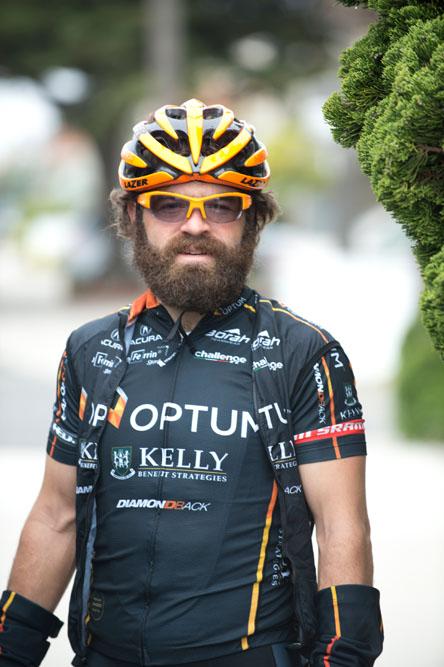
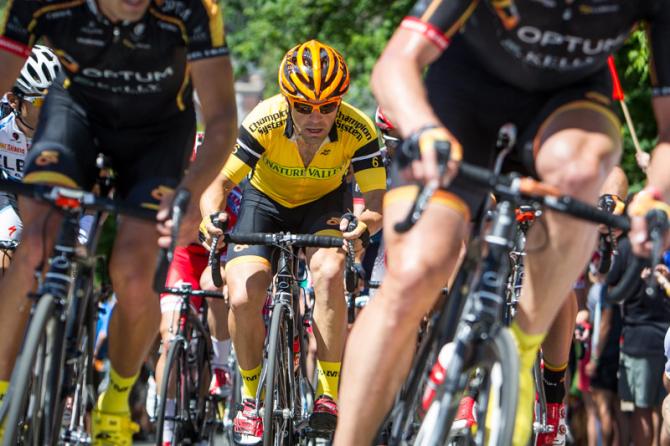
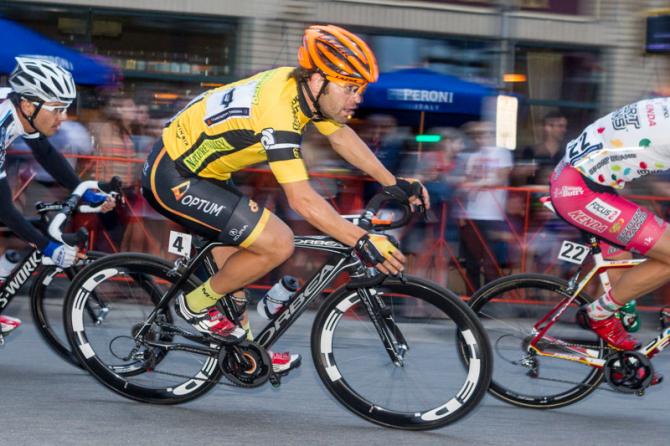
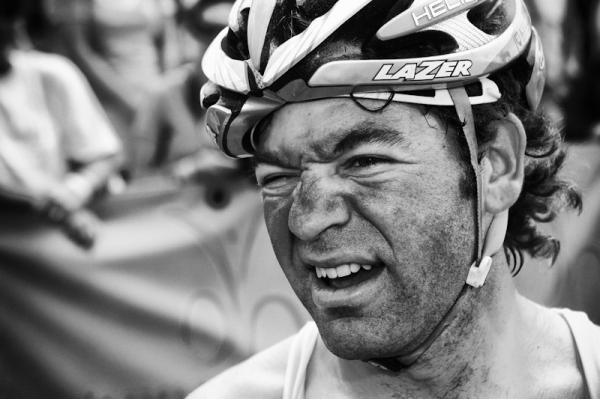
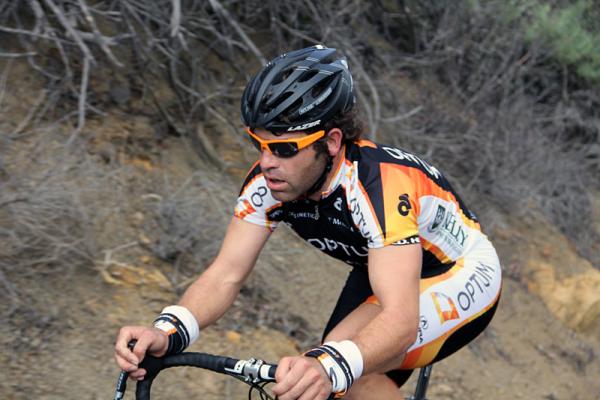
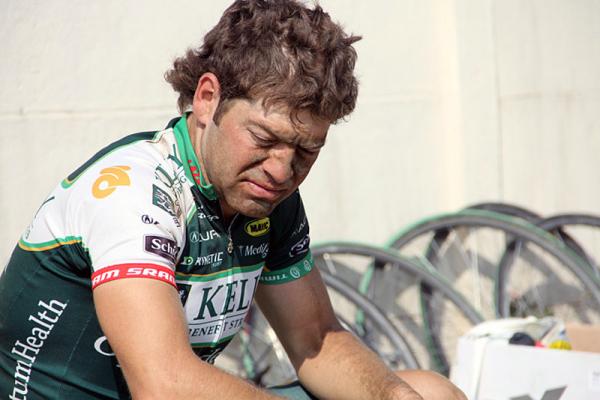
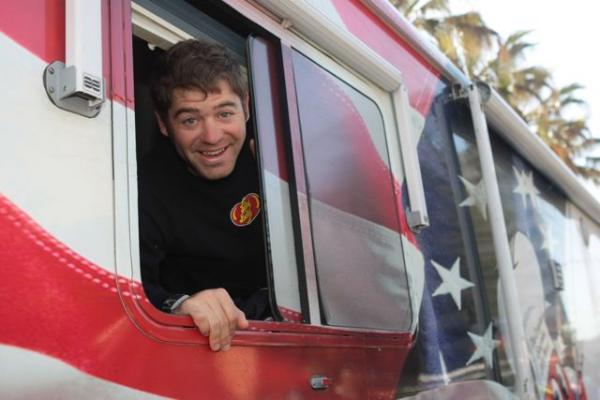
It's rare for athletes to retire at the pinnacle of their careers, and it's even rarer for athletes to make a seamless transition from elite competition to real life. Many are faced with the harsh realities of financial struggles, while others merely fight with the concepts of normality and blending into a society they have only infrequently engaged with. Mike Friedman has faced all of that and more. He may not be a household name with a string of zeros at the end of his bank balance and cabinet full of medals, but he has become one of the most inspirational figures in American cycling.
So far, all of my interviews during our 'Tour of Colorado' series had concluded in the same manner; questions would naturally peter out, the recorder would be turned off, and before long the keys would be turned in the ignition and my focus would shift to yet another destination. But before goodbyes could be said and handshakes exchanged, the interviewees would always politely ask who else was on the agenda. As the week wore on and the days counted down, I would list off the names of people I'd yet to see. In almost automatic synchronicity they would then ask the same question:
"Are you seeing Friedman?"
"What about Mike Friedman?"
And on one occasion, just: "You have to see Mike."
I'd pencilled in Friedman from the beginning of my Colorado tour, but the grading of his name was faint in the notebook that left England. In my mind, he was a maybe, rather than a must-have. However, with every passing interview the shading of his name grew thicker and more prominent, and as Colorado Springs disappeared in the rearview mirror and Boulder consumed the horizon, Friedman's initials had been underlined and surrounded by doodles of stars and poorly drawn bikes. By the time we met face-to-face in one of Boulder's collective of hipster coffee jaunts, Freidman was a must.
In he strode; curly shoulder length hair, large-rimmed glasses, a double-denim combo that inexplicably worked, and the same warm smile he wore throughout his racing career. Among the somewhat stifling Boulder elite, it meant a lot to see a friendly face.
Get The Leadout Newsletter
The latest race content, interviews, features, reviews and expert buying guides, direct to your inbox!
If you're unaware of his palmarès, that's fine. Friedman - or Meatball, as he was affectionately known during his time in the saddle - never hit the heights of some of his contemporaries. A talented junior, he came through the TIAA-Cref academy before graduating to the Slipstream WorldTour squad. He dabbled with a couple of terms in Europe, but by the end of 2010 it was clear that the highest echelons of road racing were just out of his reach.
He would move back to the US, where the pace was a little less jarring, and settle at Jelly Belly and then Optum Health, before eventually hanging up his wheels in the fall of 2014. He made the Olympics twice, met a couple of US presidents along the way, saw the world, and lived out his dream of being a professional athlete. When that journey came to a halt, Friedman had no plan. It was in his second life - the one after cycling - where this story begins.

Friedman slides his business card across the table as the barista wanders over with our drinks. The card is a mini work of art - alight with different colours and fonts, and a raised logo that would leave Patrick Bateman purring. On the opposite side is a warming photo of Friedman standing alongside excited kids who he has educated through his programme, Pedaling Minds. The kids have just learned how to ride a bike, everyone is smiling, and there's even space in one corner of the card for Friedman to take a shot at his career. '2008 Olympian - Last Place', it reads.
Pedaling Minds is Friedman's brainchild and passion. A non-profit venture, it educates children aged five to 13 and from all walks of life on how to ride a bike, and provides safety clinics, after-school programmes and private lessons.
"I started Pedaling Minds right after I retired and I started it because earlier that year, in 2014, I met this 11-year-old boy from the fifth grade who had been made fun of because he couldn't ride a bike. I taught him in an hour and a half and the emotional change that I saw in this kid, from the point that I met him, to the point where he left was profound. To see someone's transition like that, in someone's life, and knowing that the bullying would be gone, was a huge moment," Friedman says.
"I knew that I had more to offer after retirement. Cycling is a beautiful sport, and it gave me so much, but I wanted an outlet to give back. I got to travel to 32 countries, I met two presidents, and I got to talk to sponsors and fans. I felt there was more to offer than just retiring. I felt I had an amazing opportunity to help inspire kids or some parents, and if I could create a platform that encouraged more people to ride their bikes, that's exactly how I wanted to spend my time."
More from Cyclingnews' Tour of Colorado
- Floyd Landis: Redemption and the pursuit of closure
- Michael Creed: Fighting back against depression
- Danny Pate: The five races that changed my life
- Bouchard-Hall: Leaving a brighter future at USA Cycling
If Friedman's move into retirement seemed seamless, the exact opposite was in fact true. Before his retirement, doctors diagnosed Friedman's father with pancreatic cancer - it was his father who first introduced him to the bullied young boy - and the strains of Friedman's short marriage were leading towards an acrimonious divorce. To add to the pressure, Friedman had to struggle through all the post-racing issues many professional athletes find themselves faced with: loss, insecurity, doubt, fear, and - perhaps most importantly - a sense that they had no purpose in the real world.
"My transition as a pro athlete to where I am today has been very difficult," he admits.
"I wasn't ready to retire when I did, and that was very difficult emotionally. I could have still raced, and guys like Danny Pate and Brad Huff have just retired. I was racing with those guys, so there are things that I regret with my retirement because it wasn't 100 per cent my choice but, at the end of the day, there were a number of things that were going on in my life that were difficult. My dad had pancreatic cancer and died in June 2014. I went through a divorce, and so finding an identity after cycling - which was the only thing I'd known for a long time - was difficult.
"So, I went from the highest point in my life, the highest pinnacle where I had been the happiest of happy, to the lowest of the low and wondering how this had happened. It was an instant thing, knowing that I was going to retire, but then in three days I hit the panic button about what I was going to do. I knew that I had a paycheck until December but then what?"
To kick-start his life after bike racing, Friedman sold his condo and moved into a trailer in a friend's yard, and with the capital from the property sale, he slowly began to find his feet. He started Pedaling Minds and took work as a handyman around Boulder to keep the cash coming in. Some former Olympians would turn their noses up at the idea of such a post-athletic career, but Friedman grabbed the opportunity, embraced it, and used it as a positive outlet. He was good with hands, was keen to learn, and was quickly picking up work around town. On Monday, he'd be knocking through walls for another former pro, Neil Henderson; Wednesday he would be down at the local vets fixing their plumbing; Friday he'd be hanging up paintings for a neighbour. At the weekend he'd turn his skill into a form of art, with his first installation now proudly hanging up in the centre of Boulder.
The handyman work helped him fund the first steps of Pedaling Minds, and he was soon taking his classes to schools and setting up summer camps. Two volunteers were brought in to help the organization grow, and local donors included Taylor Phinney - who rode the Olympics on the track with Friedman in 2008 - and Brad Huff. A website was set up, those business cards were printed, and Friedman's skills with his hands were once again put into practice as he renovated his trailer to build bike racks throughout its interior.

A proud and humble upbringing
The idea of children enduring hard times, whether through bullying or illness, brought back memories of Friedman's own upbringing. The cycling community in and around Boulder is well-established and, without being critical, tends to be stereotypically white, well-educated and affluent. There are plenty of trust funds in this neck of the woods.
Friedman's story is different. He grew up in Pittsburgh. His father was a truck driver, his mother a student teacher who took home $50 a day and supported three boys. When his parents divorced, the family fell on hard times but, despite the fractions between his folks, Friedman's passion and love for cycling remained a priority for those around him.
"My dad driving a truck to races gave me a special opportunity, and it's something that I'm very proud of," he says.
"A lot of kids and families had a hard time going to these races that were 10 to 15 hours away from home. We had to drive to New York and New Hampshire, and my dad would drive all night, and I'd sleep in the bed at the back of his truck. We'd get to wherever we needed to be, have breakfast, race, and then make the journey home. I'd be dropped off at school on a Monday morning. That's what we did. That's what we had to do.
"My upbringing was good. We had a dysfunctional family at times, but who doesn't? I have very fond memories. There were certain things I wouldn't want to repeat in my adulthood. We grew up in a middle-class town, but we were on the other side of town where we weren't the wealthiest family. I can remember my mom would pay with food stamps and I remember getting free lunches from the school. But I was proud that we were using those services and trying to make ends meet. We weren't poor, but there were times we needed help. My upbringing was one of integrity, I think."
The deal
Integrity is a word that Friedman lives his life by but, as with the rest of us, he is not infallible. In June, Bicycling Magazine published a piece in which Ian Dille recounted the US national under-23 race from 2001. Dille was the strongest rider that day and, after a frantic chase from Friedman, the pair broke clear from the rest of the field.
Neither rider disputes what happened next; Friedman offered Dille a deal, to work together and stop attacking and Dille could have the win. However, when the line approached, Friedman opened his sprint and took the win in front of a devastated Dille.
Dille uses the well-written piece to question Friedman's morality, understandably. Why Dille couldn't stretch such analytical depth to his own decision to accept the deal in the first place isn't entirely clear, but the experience as a whole had a considerable effect on both men. They would eventually meet 15 years later so that Friedman could hand the national champion's jersey to Dille.
"For a long time, I had a blanket of guilt hanging over me. Some people felt that I shouldn't have felt that, but it didn't matter because that's how I felt inside," he says.
"I didn't feel proud about what I did, and I wanted the pressure off myself and off of him. In a way that's selfish of me but to make things right, I had to let it go. I realised that there were things that I needed to accept and things that I needed to own and make right. No one else was going to pick up the pieces. When I look back now, I know that not only am I a better person but I'm also stronger."
The episode with Dille, Friedman argues, should act as a lesson for everyone who comes through his programme. Success is a great thing but so too is owning your mistakes and taking responsibility.
"This isn't just a lesson for kids. It's a lesson for everyone out there. We've all got a ghost in the closet that can be attributed to young age, immaturity and making a mistake in the heat of the moment. No matter how bad a mistake is, though, it's important to take responsibility. It goes back to when I retired and how I looked in the mirror, and thinking 'what the fuck am I going to do?' It's about responsibility and integrity."

Integrity and responsibility are two features that Friedman works at instilling in the children that come through his programme. Yes, they learn how to ride a bicycle, and that should never be underestimated, but the program seeks to provide more than that.
"They have the ability to ride bikes for the rest of their lives. Cycling is one of the only sports that you can do your whole life, so to help with that is pretty powerful, but by the time the kids finish the class they can then go home and ride with their families. So we're not just getting the kids out on their bikes, we're getting families to ride together. I've had parents come up to me, who haven't ridden for 20 years, and asked if I can give their kids some lessons. Even if they're riding to the ice cream shop, that's still an activity they couldn't have done before, and they're doing it together.
"I want to change the way people use and look at a bicycle. Targeting riders at an impressionable age and making it fun, and easier to learn, gives them a life-long memory and something positive to look at. I'm passionate about it, and with all my heart I believe in it, and it's why I do all the work on the side. I love it."
Part of the allure, and a reason the cycling community respects Friedman, is because of his desire to give back to the sport. He doesn't have a money-making fondo, or a business that has been propped up by a well-funded family. Instead, he lives a life of fulfilment through Pedaling Minds and his handyman work that suggests a different sort of wealth. In a sport that's constantly rocked by controversies, fraudulent heroes, and selfishness, Friedman offers a welcome antidote. If life were a race, and the post-career was a classification, Friedman would be top of the standings and there'd be no talk of handing back the jersey.
"I've worked hard for everything that I've ever done," he says as we finish our drinks and stroll across town to see his first piece of artwork.
"I like living in Boulder, but I'm not part of that establishment. I like the community, but I don't have a trust fund, and I don't have a tonne of money. I just paid off my last credit card, and I'm trying to make things on my own. I'm happy with that, and who I am. I want to live the best life I can and be the best person I can be for the rest of my life. I want to be kind, honest, creative and friends with everyone. I want to help people."
He then asks, "who else are you meeting here?"
Right now, I'm not sure it really matters.
Daniel Benson was the Editor in Chief at Cyclingnews.com between 2008 and 2022. Based in the UK, he joined the Cyclingnews team in 2008 as the site's first UK-based Managing Editor. In that time, he reported on over a dozen editions of the Tour de France, several World Championships, the Tour Down Under, Spring Classics, and the London 2012 Olympic Games. With the help of the excellent editorial team, he ran the coverage on Cyclingnews and has interviewed leading figures in the sport including UCI Presidents and Tour de France winners.
